
30 Jan Romance as It Really Is – 10 Genuine Love Stories on Film
From Casablanca to Titanic, film-makers have delivered some dramatic emotional highs and strong passions. Tragic separations, burning flames of desire and tears shed are often so grandiose that the illusion they’re making is a bit too hard to believe. Once we grow up and find poetry in mundane things, that’s when we get hungry for art that really does imitate life. With just a hint of reinvention, these ten movies exhibit love in all of its bareness.
1. Blue Valentine
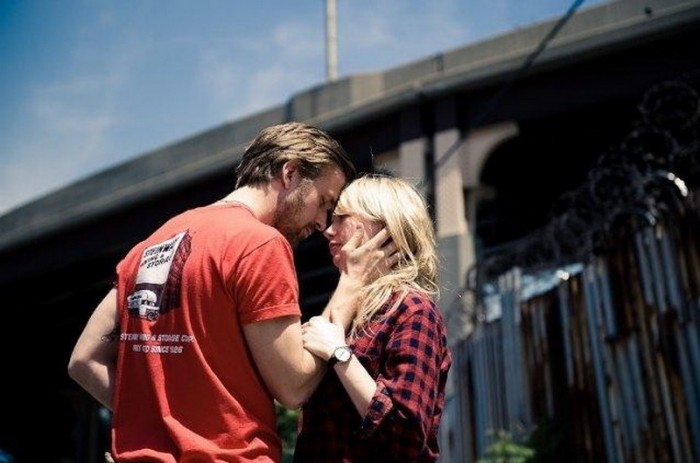
When in search for some real love stories, you can easily overlook this gloomy marital drama. What seems like another soppy attempt in the romance genre, due to its sentimental title and ad, is in fact the immediate insight into expectations and failures. The tragic characters of Derek Cianfrance’s somber stage are people just like you and me, observed before and after the debacle. Through retrospective narrative, the story of David and Cindy (portrayed by Ryan Gosling and Michelle Williams) is a telling of a carefree courtship, same as any other, inebriated only with high promises of the incredible tomorrow. Slightly marginalized as individuals, and both burdened with the pressure of making it on their own, these two lovebirds find a sort of sad, but consoling shelter in each other. When they finally agree that there’s nothing else in their path but marriage, their inexperience starts to seem like the regrettable beginning of their end. And when we see them in the present tense, estranged and unrealized, in a pathetic effort to reclaim their hope in existence, it’s clear that life doesn’t write happy endings on its own. Ultimately, Cianfrance has managed to achieve what he was going for, since Blue Valentine’s last scenes are as disheartening as they are true.
2. Certified Copy
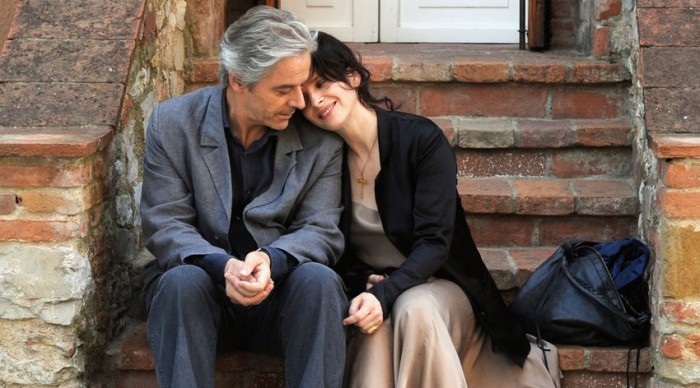
In a world where every original is deprived of its authenticity, human relations can only hope to achieve their true depth. In between make-beliefs and pretences, that pristine touch of two souls is in permanent risk of getting lost. And by oscillating around that thesis, Certified Copy arises. The first movie Abbas Kiarostami made outside of Iran is set in sun-bathed Tuscany, in the place where nothing can be hidden from the clarity of the afternoon. The unnamed Italian (brilliantly natural and coquettish Juliette Binoche), enjoys the intense company of a British writer (first-timer William Shimell) in what started as a flirting and innocent walk. The nature of their relationship, however, gradually becomes more and more enigmatic, as it erupts with intimacy and the possibility of a different life. Beginning their walk as acquaintances, characters are progressively engaging into a game of dangerous transformations, until they finally become the game themselves. Increasingly, reality blends with acting, to create the irreversibly integrated stream of already lived hopes, desires and disappointments. Strangers become lovers, lovers merry, the married couple fights and reconciles, and all of that in a single afternoon. A copy within a copy, a play within a movie, Certified Copy is the powerful experiment of relationship and deception.
3. 2 Days in Paris
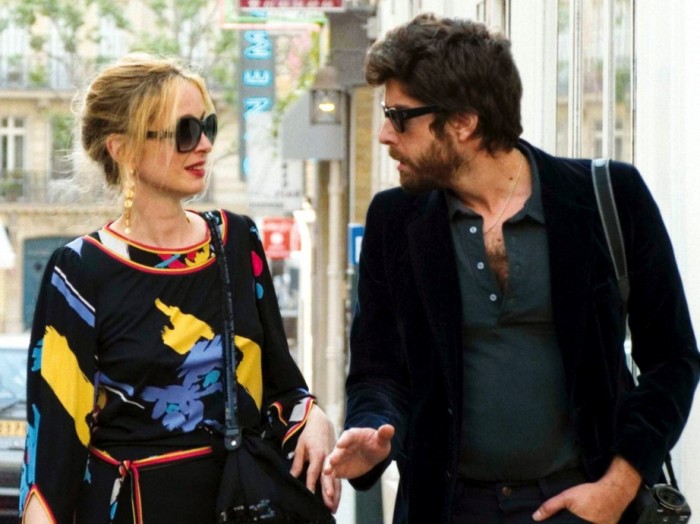
By all means, a love tale set in Paris has to be a passionate affair of the heart. Godard and Bertolucci basically wrote a manifest for it, although The City of Light opened its gates for on-screen lovers long before them. Still, breathless erotica is not the tendency of this movie. Almost entirely created by lovely and fully blossomed Julie Delpy (she wrote, produced, directed and edited the movie, right before she composed the soundtrack and played the leading role), 2 Days in Paris is a guidebook for modern lovers. Modern, of course, only by character of their time, but as much confused as ever. For an independent Frenchwoman that Delpy’s Marion is, Paris is robbed of all of its romance. In fact, not many new-age lovers would find their liberating, orgasmic connection in Paris, as the old-time ones have, and this movie proves that with charm. For matured Marion and her hypochondriac boyfriend Jack (Adam Goldberg), this brief encounter with France is what seems like a long expected breakdown. Instead of mesmerizing banks of the Seine and fervent love making in alleys of Montmartre, Delpy’s Paris is just another stop on the train ride full of commitments, frustrations and insecurities. The end of this affair is not a Hollywood heartbreak, but the most actual one.
4. Before Midnight
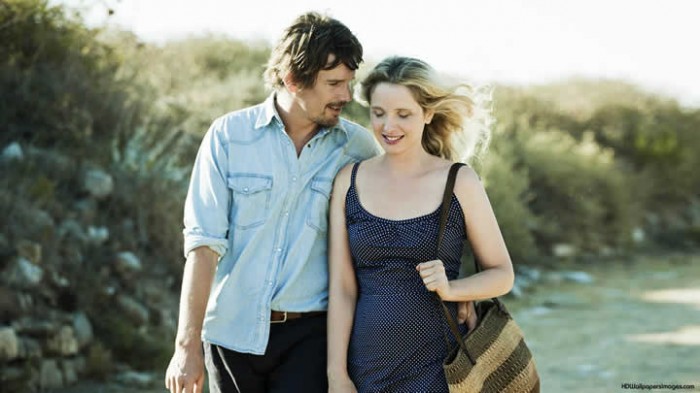
Somewhere along the way, Jesse and Celine (Julie Delpy and Ethan Hawke) grew old. The enchanting craft of Richard Linklater is precisely in playing with time perspectives, which makes the whole Before trilogy multidimensional. Re watched from different points in life, each movie suggests a multitude of various ideas. If the first one is an ode to poetic prospects of young love, and the second is its coming-of-age epilogue, Before Midnight grows out of it as realistic and final demystification. Even thought the ambiguous finales of the first two are the romanticism tests of a sort that allows us to write our personal endings, the third act is rational and definitive. However, that doesn’t mean that Before Midnight is deprived of life’s grace, but exactly the opposite. After finding out that they have invented each other through the course of their relationship, Jesse and Celine can finally see one another as they really are. Back to their bare selves, they are given a chance of finding new beauty. Between Celine’s inner complexity (Still there. Still there. Still there. Gone.) and Jesse’s boyish charms of the unshakable dreamer (But I accept the whole package, the crazy and the brilliant.), Before Midnight shows that there’s always hope.
5. Ruby Sparks
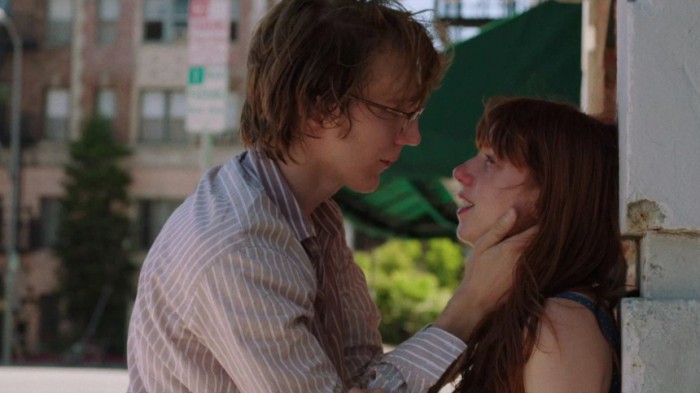
Another thought on how we create those we love from illusions of our own image erects from Jonathan Dayton’s and Valerie Faris’ Ruby Sparks. No one is ever perfect as we made him/her to be in our minds, and neither is Calvin Weir-Fields’(Paul Dano) dream girl, even though she’s completely a product of his imagination. With charisma and intelligence, this dissection of a deeply hidden habit of making the loved person into something it’s not, turns out to be extremely true. And this idea is not where Ruby Sparks concludes. Riddled with his own self-doubts, Calvin is very close to collapsing into the abyss of male ego and narcissism, as he continues to control Ruby’s emotions and mess with her thoughts. (This method of destruction is not less known to women when it comes to relationships, of course.) Also, as the fictional ideal, Ruby (played by Zoe Kazan, the screenplay’s writer), in some layers of the story’s meaning presents the creation itself, and offers a deeper understanding of the creative process. Sunny in the beginning, the picture grows dim frame by frame, and climaxes in a dark note, before it becomes shiny once again. Its peak is engrossing and disturbing simultaneously, as Calvin reminds us of what we are capable of in our times of despair. Honest and delightful.
6. Chungking Express
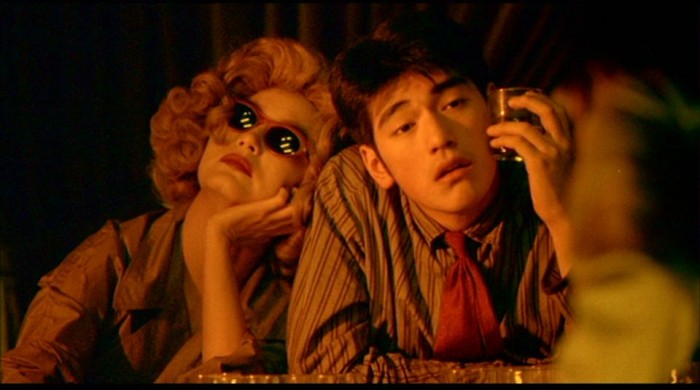
For those accustomed to big dramas and emotional pathos on screens, Chunking Express will be a complete bewilderment. The distinguished and highly acclaimed Wong Kar-wai’s cinematic technique aside, this love story placed in Honk Kong is a colorful and fulfilling experience precisely because it never climaxes. The film is divided in two unrelated tales of heartbreak, both simple and irresistible. With their random events that never succeed in forming a plot, they are the fragments of the authentic, unadorned life in a metropolis. Even when they just scratch the surface of lyrical prose (He Qiwu’s obsession with pineapple cans and promises of eternal love or Faye’s adventures in a stranger’s apartment), these stories remain true to life. The lovelorn aches of two main characters, cops 223 and 663 (charming Takeshi Kaneshiro and Tony Leung), are enthralling sketches of the unidealized break-ups, followed by new possibilities and acquaintances. There is a new word on the Web that fully reflects Wong Kar-wai’s sense of neoteric love stories, and the word is sonder. The realization that each random passerby is living a life as vivid and complex as your own, an epic story that continues invisibly around you like an anthill sprawling deep underground, with elaborate passageways to thousands of other lives that you’ll never know existed, in which you might appear only once, as an extra sipping coffee in the background, as a blur of traffic passing on the highway, as a lighted window at dusk is exactly what Chunking Express feels like. And it’s hauntingly beautiful.
7. 500 Days of Summer
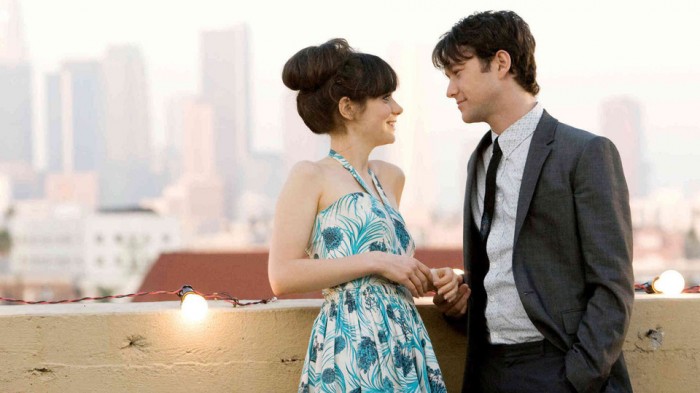
The exact opposite interpretations of The Graduate that 500 Days of Summer’s couple experiences make the most accurate description of how we sometimes tend to misunderstand one another. For Tom and Summer (Joseph Gordon-Levitt and Zooey Deschanel), the reason of discord is obvious to everyone but the romantic boy, as it often happens in life. Intoxicated with the promises of the evening (which I believe is the actual line I’ve picked up from the movie years ago), Tom is a character revived from the old times and endowed with the firmest belief in The One. Although vastly celebrated, 500 Days of Summer deserves it all. The disputes over the Beatles, hand holding in IKEA, the split scenes between expectations and reality – every little detail resonates with wits. In its entirety, it is the perfect break-up story, but even more importantly, 500 Days of Summer is a veritable note on relationship idealization. Robin’s better than the girl of my dreams. She’s real, confesses the story’s raisonneur, Paul. Thanks to such sparklers, the tired and wasted genre of romcom has experienced its renaissance.
8. Lost in Translation
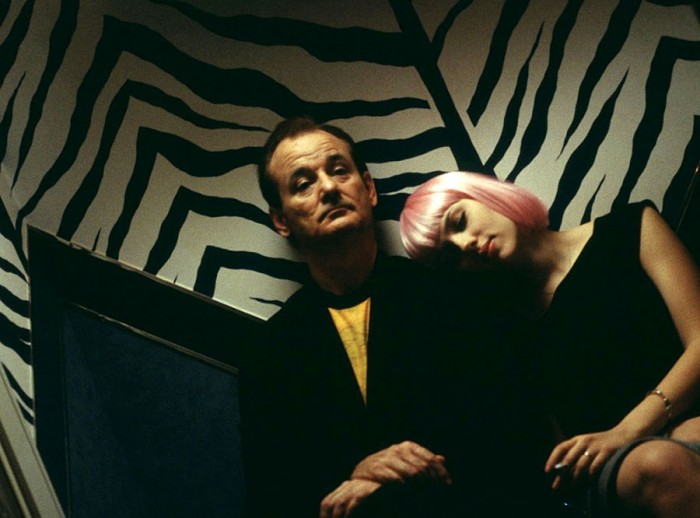
As it sometimes occurs, the most influential encounters in life are the briefest ones. People met somewhere along the way, people that we’ve lost track of, those we can’t even place in our minds, often remain as a vague concept of something forgotten, and reshape us to the fullest. Such fleeting connections are transcending. So when Bob (inimitable Bill Murray) and Charlotte (suggestive Scarlett Johansson) bid farewell to one another at the movie’s finish, it’s clear that that ambiguous recollection will follow them for the rest of their days. The unrepeatable story signed by Sofia Coppola is a junction of unlikely met emotions – overtaken with melancholy, we laugh. The contrasts of dark and light that movie makers intentionally used, while filming in a Tokyo hotel and the city streets, are a praiseworthy way of emphasizing the story’s change of moods. With little words, Lost in Translation’s consuming characters are expressed with their silent gestures. Both completely lost, not only in a strange land, but in their life choices as well, they conduct the unspoken and moody, but comforting affair. While swaying back and forth from the unusual friendship to the prospect of a romance, Bob and Charlotte remain mutually understood. The quiet joy of platonic love has never looked more gratifying.
9. Amour
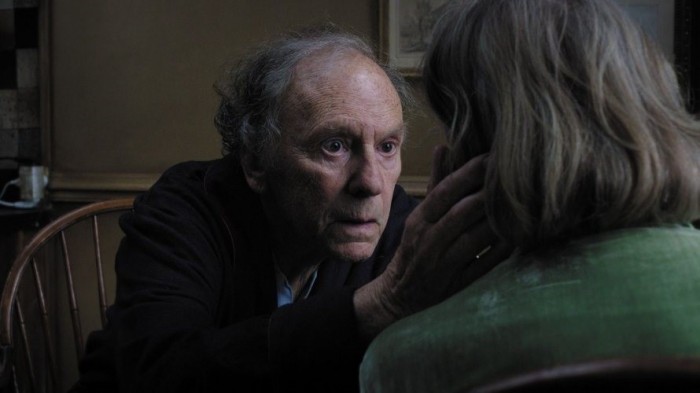
A masterpiece about life, death and everything in between, as critics described it, Michael Haneke’s Amour is absolutely elevating. It’s a long, harsh ride to the life’s not so grand conclusion, which starkly overwhelms. Life has a way of silently displacing the elderly from our sight, and what happens behind their heavy curtains is not The Notebook story. As much as we would like to see Anne and Georges (Emmanuelle Riva and Jean-Louis Trintignant) dancing on the porch, somewhere deep, we know that that’s not what actually happens. The bona fide story of growing even older then old is usually the story that resembles Amour. Illness, dehumanization and tiredness are what awaits in the other half of our lives, as much as we refuse to believe it. Once again, its beauty lies within its realism. Haneke’s depiction is the harrowing experience that we better live through until the time comes, because we just might learn something about commitment, promises and emotional depths. When it comes to the concept of eternal love, Amour is what really lies beneath.
10. In the Mood for Love
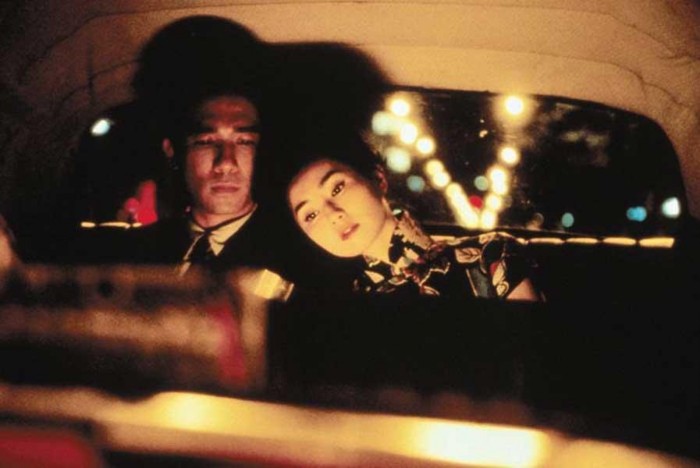
That glowing expectation that gently enhances inside of us while watching a love drama has found its master in the earlier mentioned Wong Kar-wai. His informal trilogy of unrequited romance (Days of Being Wild, In the Mood for Love and 2046) is dark and full of heat. In the Mood for Love, or The Age of Blossoms, is exactly what its Chinese title suggests – a fleeting time of youth, beauty and love. Youth in the meaning of possibilities, as its main characters, Chow Mo-wan and Su Li-zhen (Tony Leung and Maggie Cheung) are people bound within the borders of their cracked marriages. As they slowly begin to find the comfort in each other’s presence, Chow and Su are remaining tacit. The platonic nature of their relation stays hidden behind closed doors, which simultaneously throws us into agony and ecstasy. Repressed emotions are the very substance of the most intense loves on screen, and all the way through In the Mood for Love, they are going to keep us on the edge. The tension rises to the fever pitch to live us not disappointed, but inflamed with its poetry. The passing moments, meals eaten in solitude, cigarette bums and missed opportunities of the Kar-wai’s world are bursting with their potency.

